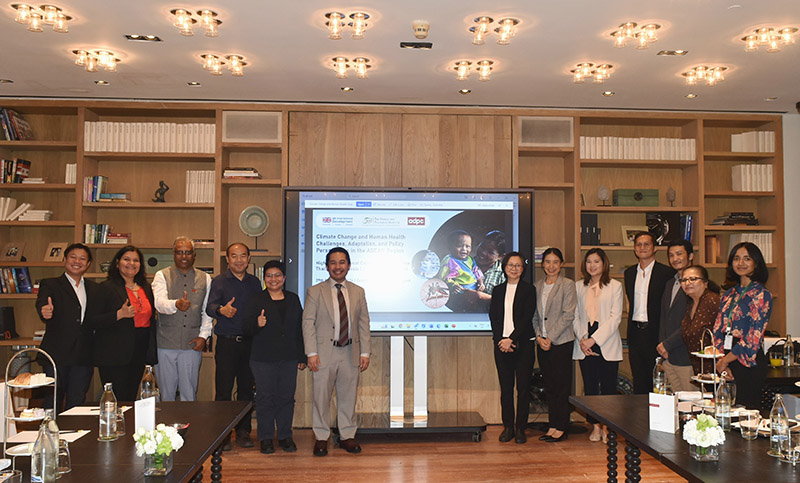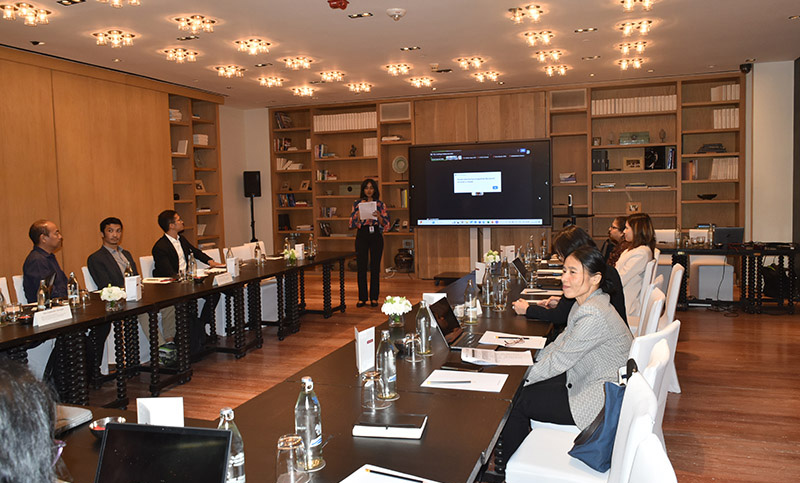Climate Change and Human Health Challenges, Adaptation, and Policy Perspectives in the ASEAN Region

The event focused on addressing the profound impact of climate change on human health, particularly in the Indo-Pacific region, where vulnerabilities are more pronounced. Climate variability and changes in patterns have resulted in significant health challenges, including a rise in vector-borne diseases like malaria and dengue, and the adverse effects of extreme weather events such as floods and heatwaves. To tackle these pressing issues, The Energy and Resources Institute (TERI) has been commissioned by the UK’s Foreign Commonwealth and Development Office (FCDO) to conduct an evidence review on climate change and its health impacts in the region.
In collaboration with the Asian Disaster Preparedness Center (ADPC), TERI carried out country-level assessments across Thailand, Indonesia, the Philippines, and Vietnam. These involved secondary research, expert consultations, and focused group discussions. Supported by ADPC and the British Embassy Bangkok, the event served as a regional consultation workshop to share country-level evidence and draft recommendations. It also aimed to bring together stakeholders for open discussions on emerging evidence, resilience strategies, and priority actions to enhance public health systems in the Indo-Pacific region.
The comprehensive study conducted between 2023 and 2024 covered eleven countries, including India, Bangladesh, Nepal, and several Southeast Asian and Pacific Island nations. It examined the causal pathways of climate-sensitive diseases, vulnerabilities within public health systems, and policy gaps, with a particular focus on how climate change disproportionately affects vulnerable groups. The study highlighted strategies to build adaptive and resilient health systems, emphasizing the importance of addressing these disparities.
The event presented success stories, good practices, and country-specific evidence, offering pathways toward Climate-Resilient Health Systems (CRHS). Outputs like policy briefs aim to foster partnerships at multiple levels, aligning with international commitments and national priorities to drive climate action in the health sector. Ultimately, the event seeks to promote evidence-based policies and actions to protect and empower vulnerable populations against climate-induced health challenges.




